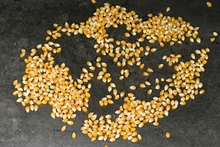
Aging is a natural, complex process characterized by a gradual decline in physical and mental capabilities. It covers a variety of physiological changes that increase vulnerability to disease and ultimately lead to death. The primary causes of aging are a combination of genetic, environmental, and lifestyle factors. While we cannot halt aging entirely, understanding the contributing factors can help slow its progression and promote healthier living.
How Lifestyle Factors Accelerate Aging:
- Poor Diet
A diet high in processed foods, sugar, and unhealthy fats accelerates aging by promoting inflammation and oxidative stress. These dietary habits can lead to chronic conditions such as obesity, diabetes, and heart disease, which not only affect overall health but also shorten telomere: the protective caps on our DNA. Shorter telomeres are directly linked to the aging process, making diet a crucial element in managing aging.
- Smoking
Smoking introduces a myriad of toxins into the body, many of which produce free radicals - unstable molecules that damage cells. The damage from these free radicals accelerates aging by degrading collagen and elastin, leading to premature wrinkles and sagging skin. Smoking compromises the cardiovascular system, reducing blood flow and oxygen delivery to tissues, further contributing to the aging process.
- Chronic Stress
Persistent stress triggers the release of cortisol, a hormone that, in high levels over prolonged periods, can damage brain cells and shorten telomeres. Chronic stress also weakens the immune system, making the body more susceptible to infections and diseases. Over time, the cumulative effects of stress accelerate aging both internally and externally.
- Exposure to UV Radiation
Ultraviolet (UV) radiation from the sun is a major factor in skin aging. UV rays penetrate the skin, causing DNA damage and breaking down collagen and elastin fibres, which are essential for maintaining the skin's firmness and elasticity. This leads to wrinkles, age spots, and an increased risk of skin cancer. While some sun exposure is beneficial for vitamin D synthesis, excessive exposure without protection accelerates skin aging.
- Excessive Alcohol Consumption
Heavy alcohol consumption dehydrates the skin and depletes the body of essential nutrients. Alcohol also produces toxins when metabolized, which can damage cells and increase oxidative stress. Over time, this leads to liver damage, cardiovascular issues, and visible signs of aging, such as premature wrinkles and a dull complexion.
5 Ways to Tackle Early Aging:
- Adopt a Nutritious Diet
Incorporate a balanced diet rich in antioxidants, vitamins, and minerals. Focus on whole foods, including fruits, vegetables, lean proteins, and healthy fats, which help combat oxidative stress and inflammation, slowing the aging process.
- Quit Smoking
Ceasing smoking has immediate and long-term benefits for your skin and overall health. Quitting reduces the body's exposure to harmful toxins, allowing the skin and other organs to begin the repair process.
- Manage Stress Effectively
Engage in regular stress-relieving activities such as meditation, exercise, or hobbies. Developing coping strategies and maintaining a support network can significantly reduce the impact of chronic stress on aging.
- Protect Against UV Radiation
Use broad-spectrum sunscreen daily and wear protective clothing and sunglasses to shield your skin from UV damage. Avoid peak sun hours, and seek shade whenever possible to minimize exposure.
- Moderate Alcohol Intake
Limit alcohol consumption to moderate levels. Choose healthier options like red wine, which contains antioxidants, and ensure you stay hydrated to mitigate the dehydrating effects of alcohol.
Making mindful choices today paves the way for a healthier tomorrow.














